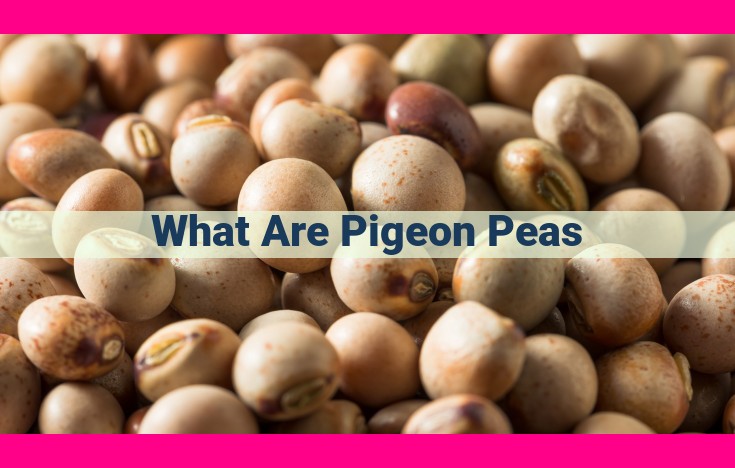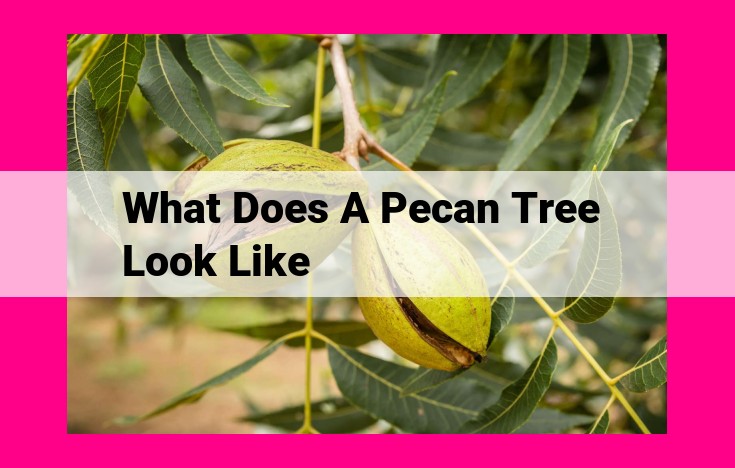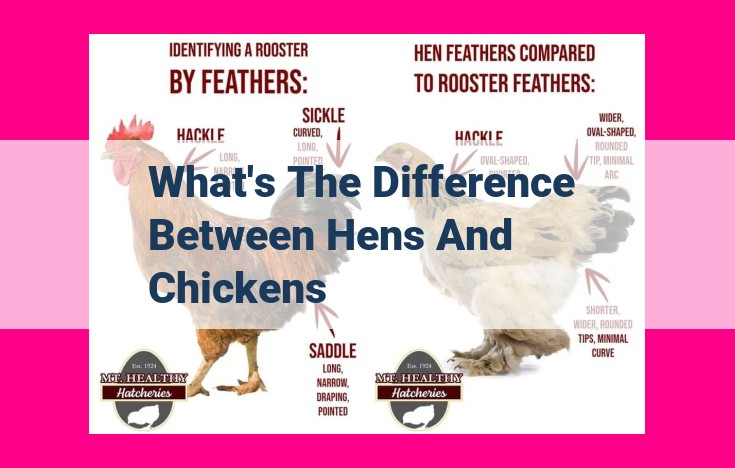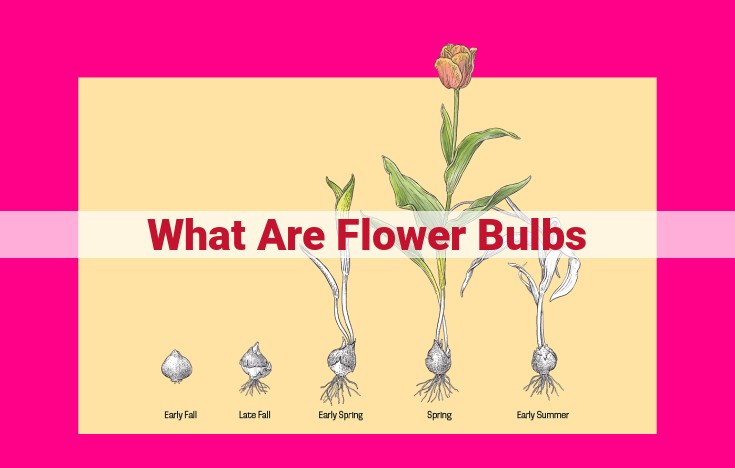Pigeon Peas: A Nutritious Legume For Health, Cuisine, And Agriculture

What are Pigeon Peas?
Pigeon peas, scientifically known as Cajanus cajan, are a species of legume in the Fabaceae family. These peas are characterized by their small, round shape and beige to brown color. Rich in protein, fiber, and essential micronutrients, pigeon peas are a versatile culinary ingredient used in various dishes worldwide. As a leguminous crop, they play a crucial role in agriculture, serving as a valuable source of food, animal feed, and soil enrichment through nitrogen fixation.
Pigeon Peas: A Culinary and Nutritional Powerhouse
Tucked away in the realm of legumes lies a hidden gem known as pigeon peas (Cajanus cajan). These unassuming yet extraordinary beans have captivated cultures worldwide, gracing dinner tables with their versatility and nourishing properties. Let us embark on an enchanting journey to unveil the secrets and significance of this culinary and nutritional treasure.
A Journey into the Heart of Pigeon Peas
Pigeon peas, also affectionately known as red gram, Congo peas, or gandules, belong to the illustrious legume family, Fabaceae. Their unassuming appearance belies a rich history and a remarkable nutritional profile that has sustained countless generations.
Scientific Classification:
- Kingdom: Plantae
- Clade: Tracheophytes
- Clade: Angiosperms
- Clade: Eudicots
- Clade: Rosids
- Order: Fabales
- Family: Fabaceae
- Genus: Cajanus
- Species: Cajanus cajan
Biological Characteristics of the Enigmatic Pigeon Pea
The pigeon pea, Cajanus cajan, belongs to the diverse Fabaceae family, renowned for its esteemed leguminous members. This exceptional plant is classified as the sole species within its genus, Cajanus, further solidifying its unique identity.
Cajanus cajan stands tall as a perennial shrub that can reach impressive heights of up to 10 feet. Its woody stems give rise to a graceful canopy of trifoliate leaves, each leaflet displaying an elongated oval shape with serrated edges. The plant’s vibrant blooms, adorned in shades of yellow, add a dash of color to its verdant foliage.
Concerned with its physical characteristics, pigeon peas often measure between 0.2 and 0.4 inches in diameter, displaying a mottled appearance that ranges from cream to brown. These plump legumes are adorned with a smooth, rounded shape that distinguishes them from other pulses. Their size and shape contribute to their versatility in culinary preparations.
Nutritional Value: The Powerhouse of Pigeon Peas
Unveiling the culinary charm of pigeon peas is not merely about their delightful taste; these legumes hold a treasure trove of nutritional wonders.
Protein Paradise: Pigeon peas boast an impressive protein profile, making them a plant-based powerhouse. Their high protein content aids in building and repairing tissues, promoting satiety, and supporting overall well-being.
Fiber Fiesta: Pigeon peas are a veritable fiber festival, boasting significant amounts of both soluble and insoluble fiber. Soluble fiber plays a crucial role in regulating blood sugar levels, while insoluble fiber keeps the digestive system humming smoothly. This fiber duo helps curb cholesterol absorption and promotes a healthy gut microbiome.
Micronutrient Medley: Beyond their protein and fiber wealth, pigeon peas are a treasure trove of essential micronutrients. They are a rich source of iron, vital for oxygen transport, as well as magnesium and potassium, crucial for heart health and muscle function. Additionally, the presence of zinc supports immune function, while vitamin B6 contributes to brain function and energy metabolism.
Culinary Delights with Pigeon Peas: A Culinary Journey
In the culinary realm, pigeon peas embark on a global odyssey, gracing kitchens and palates worldwide. These nutritious legumes, known for their distinctive earthy flavor and versatility, have found their way into an array of delectable dishes.
Dals: A Staple in India
Pigeon peas shine as the heart of traditional Indian dals, hearty and flavorful stews. Their mild, nutty taste blends harmoniously with aromatic spices like turmeric, cumin, and coriander. Whether served as a comforting lunch or as an accompaniment to savory curries, pigeon peas add a protein-rich foundation to these beloved dishes.
Curries: A Spicy Adventure
In the vibrant world of curries, pigeon peas bring a robust presence to the pot. Their ability to absorb the vibrant flavors of aromatic spices makes them an indispensable ingredient. From creamy coconut curries with a hint of sweetness to fiery vindaloos that pack a spicy punch, pigeon peas add a delightful texture and depth of flavor that elevates any curry experience.
Other Culinary Creations
Beyond their role in dals and curries, pigeon peas find their way into a myriad of culinary adventures. They lend their nutty goodness to salads, adding a crunchy dimension and a boost of protein. In soups and stews, their earthy flavor blends seamlessly with vegetables and aromatic herbs, creating hearty and comforting meals.
Cooking Methods: Unlocking Flavor
Pigeon peas adapt beautifully to various cooking methods, each unlocking their unique flavors and textures. Boiling softens them to a tender perfection, while frying brings out their nutty crunch. Pressure cooking is a time-saving option that preserves their nutritional value and vibrant color.
Flavors: A Symphony of Taste
Pigeon peas possess a naturally mild flavor that allows them to absorb and enhance the flavors of the ingredients they accompany. Their slight sweetness and earthy undertones complement both savory and sweet dishes, making them a versatile culinary ingredient.
Unlock the culinary potential of pigeon peas and embark on a flavorful journey. From hearty dals to aromatic curries, and beyond, these nutritious legumes add a touch of global flair and a boost of nutrition to any meal.
Agricultural Importance of Pigeon Peas
Cultivation for Food, Feed, and Soil Enrichment
Pigeon peas, known scientifically as Cajanus cajan, are versatile and resilient crops that offer numerous agricultural benefits. They are cultivated worldwide as a primary source of food for humans and animals. The nutritious peas are high in protein, fiber, and essential micronutrients, making them a valuable dietary staple, especially in regions with limited access to animal-based protein.
In addition to their culinary value, pigeon peas are also grown for animal feed. Their high protein content makes them an excellent supplement for livestock diets, reducing the need for expensive protein concentrates. The stover (dried stalks and leaves) of pigeon peas is also used as animal fodder, providing essential nutrients and fiber.
Moreover, pigeon peas play a crucial role in soil enrichment. As leguminous plants, they have the unique ability to fix atmospheric nitrogen. This process converts nitrogen into a form usable by plants, improving soil fertility and reducing the need for chemical fertilizers. This makes pigeon peas an important crop in sustainable farming systems.
Role as a Nitrogen-Fixing Legume
The symbiotic relationship between pigeon peas and certain soil bacteria, known as rhizobia, is essential for nitrogen fixation. These bacteria form root nodules on the roots of pigeon peas, converting atmospheric nitrogen into ammonia, which is then used by the plant to synthesize proteins and other essential compounds.
The nitrogen-fixing ability of pigeon peas has several advantages. It reduces the need for synthetic nitrogen fertilizers, which can be harmful to the environment and contribute to greenhouse gas emissions. Moreover, the enhanced soil fertility promotes the growth of other crops in rotation with pigeon peas, increasing overall agricultural productivity and sustainability.
In conclusion, pigeon peas are not only a valuable food source but also contribute significantly to agricultural systems. Their cultivation provides nutritious food and feed while enriching the soil and reducing the reliance on chemical fertilizers. These benefits make pigeon peas an essential crop for sustainable and resilient agriculture.
Health Benefits of Consuming Pigeon Peas: A Nutritious Superfood
Pigeon peas, scientifically known as Cajanus cajan, offer an array of health benefits that make them a valuable addition to any diet. Rich in protein, dietary fiber, and micronutrients, they play a crucial role in maintaining overall health and well-being.
Lowering Cholesterol
Pigeon peas are a good source of soluble fiber, which binds to cholesterol in the digestive tract and prevents its absorption into the bloodstream. Regular consumption of pigeon peas can help reduce high cholesterol levels, contributing to a healthy heart.
Managing Blood Sugar
The high fiber content of pigeon peas also helps regulate blood sugar levels. Fiber slows down the absorption of carbohydrates into the bloodstream, preventing spikes in blood glucose. This makes pigeon peas an excellent choice for people with type 2 diabetes or those at risk of developing it.
Providing Antioxidants
Pigeon peas are rich in antioxidants, which protect cells from damage caused by free radicals. These free radicals are unstable molecules that can cause oxidative stress and lead to chronic diseases such as cancer and heart disease. The antioxidants in pigeon peas help neutralize these free radicals, reducing the risk of developing these conditions.
Incorporating pigeon peas into your diet can be achieved through various culinary methods. They can be added to soups, stews, curries, and salads. Their nutty flavor and texture enhance the taste of dishes while providing numerous health benefits.
Whether you are looking to improve your heart health, manage blood sugar levels, or boost your antioxidant intake, pigeon peas offer a delicious and nutritious solution. With their versatility and health-promoting properties, pigeon peas are a must-have in a balanced and healthy diet.





